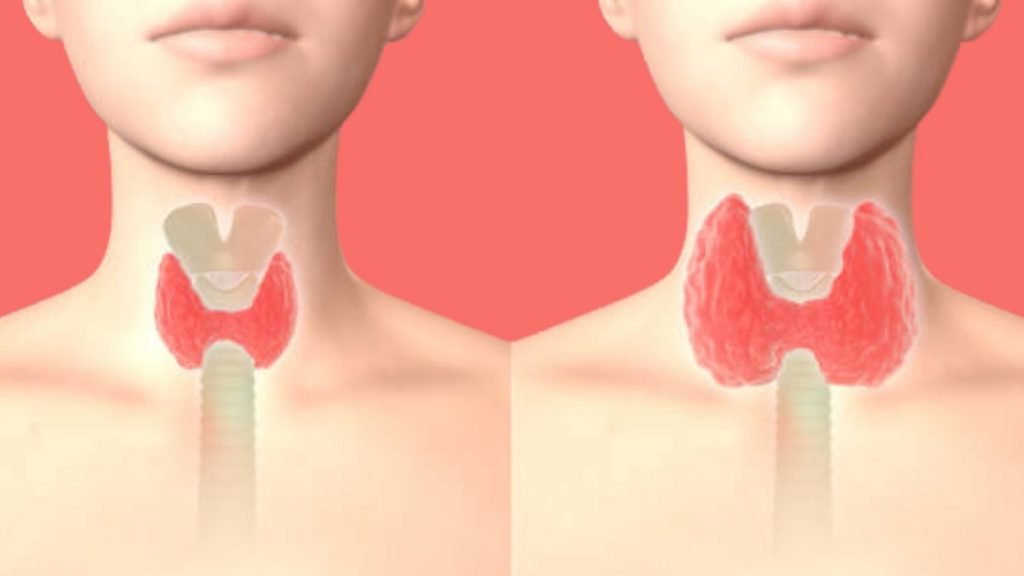- “I am having tough time in losing weight”
- “I have gained so much weight in past few months and I feel terrible “
This is the common complaints I keep hearing from clients who are having thyroid problem. It is estimated that around 32% of Indian population suffers from thyroid disease. Unintended weight gain, weight loss, depression, increased risk of cardiovascular disorders and diabetes are the symptoms of thyroid disorder.
Thyroid is a 2inch butterfly shapes gland located at in front of the neck. Though the thyroid is a small gland but it is one of the most important endocrine gland in the human body and it affects every organ in the body. Thyroid gland regulates the metabolic activity of the body, body temperature, brain development, nervous system, blood pressure, blood calcium level, cardiovascular system. Hypothyroidism or underactive thyroid gland is the most common disorder of the thyroid gland. Today in this article I will tell about hypothyroidism and diet.
Hypothyroidism disease is caused due to underactive thyroid gland. In this disorder the gland produces less amount of thyroid hormone which in turn affects the functions performed by the thyroid gland mentioned above. Weight gain (in many cases weight loss), dry skin, dry and thinning hair, depression, fatigue , pain and stiffness of joints, constipation, feeling cold, changes in voice, impaired memory, infertility, are major symptoms of hypothyroidism.
Hypothyroidism is an autoimmune disorder that means body itself attacks the body cells which lead to underactive thyroid. It can also be due to lack of iodine intake and genetic. One more factor which might cause hypothyroidism is bad lifestyle and stress. Women are more affected than men.
Treatment for hypothyroid involves medication, diet and lifestyle modification.
Medication:
Hypothyroidism is a lifelong condition. For many people, medication reduces or alleviates symptoms. Hypothyroidism is best treated by using levothyroxine (Levothroid, Levoxyl). This synthetic version of the T4 hormone copies the action of the thyroid hormone your body would normally produce. The medication is designed to return adequate levels of thyroid hormone to your blood. Once hormone levels are restored, symptoms of the condition are likely to disappear or at least become much more manageable. Once you start treatment, it takes several weeks before you begin feeling relief. The most important thing one should remember is to take the medicine on empty stomach, 1st thing in the morning and should not consume anything for an hour.
Diet:
Diet plays major roles in managing underactive thyroid disorder.
• Eat balanced diet
Balanced diet comprises of balanced proportion of carbohydrates, protein and fat. Whole grains, beans and daal, grains, green vegetables should be included in your meal which will not only full fill body’s need but it will also provide necessary amount of iodine needed.
• Intake of vital nutrients
The glands need certain vitamins and minerals to function effectively. Zinc, iodine, selenium, vitamin e and copper. Nuts like walnuts, cashews, almonds, brazil nuts, green leafy vegetables, curd/yoghurt, whole-grains, beans and lentils, salmon fish, seeds of sunflower, pumpkins, cheese, dark chocolate are rich source of above mentioned vitamins and minerals.
• Coconut Oil
Coconut oil provides capric acid, caprylic acid, and lauric acid, which will keep your metabolism healthy while increasing energy levels. Your body will feel nourished, due to its antibacterial, antioxidant, and antimicrobial properties. It increases your immunity, stabilizes your blood sugar, and increases endurance and brain function.
• Green tea:
Green tea helps in increasing the body metabolism which slows down due to underactive thyroid gland and this causes the body to burn less calories, green tea helps in burning the calories, which in turn leads to weight loss. But studies claim excess intake of green tea might cause reduce production of t3 and t4 hormones. So 2 cups of green tea can be taken by person suffering from hypothyroidism.
• Probiotics:
Bacteria present in the intestine is important for gut health. A healthy gut keeps away infection, bacteria, and parasites away and also enhances the absorption of minerals, vitamins and medicine. Probiotics helps to keep the gut healthy thus facilitating better absorption of nutrients and medicines.
• Herbal tea:
Jeera water, ginger, cinnamon and turmeric tea, coriander seeds herbal concoctions helps in hypothyroidism.
• Avoid Goitrogens:
Goitrogens present in certain foods can potentially decrease thyroid hormone production in the body, when eaten raw. Foods that contain goitrogens are mainly green, cruciferous vegetables. Some of them are:
- Brussel Sprouts
- Broccoli
- Cabbage
- Cauliflower
- Russian Kale
- Mustard
- Mushrooms
Other foods to avoids: Processed foods, namkeen, sweets all are rich in calories, salt and sugar and are of high calorific value and which leads to weight gain.
• Lifestyle :
Bad and irregular lifestyle and stress are also major causative factor of hypothyroidism. Apart from dosage of synthetic thyroid hormone to keep your thyroid gland working, lifestyle changes also helps people suffering from hypothyroidism.
If you’re not feeling well, there’s much to be gained from focusing on a healthy diet, regular exercise, stress management, and more to help you feel your best with hypothyroidism. It’s extremely important to have a lifestyle to control stress and have a good lifestyle which will not only helps in fighting of the symptoms of hypothyroidism but help you live a better life.

